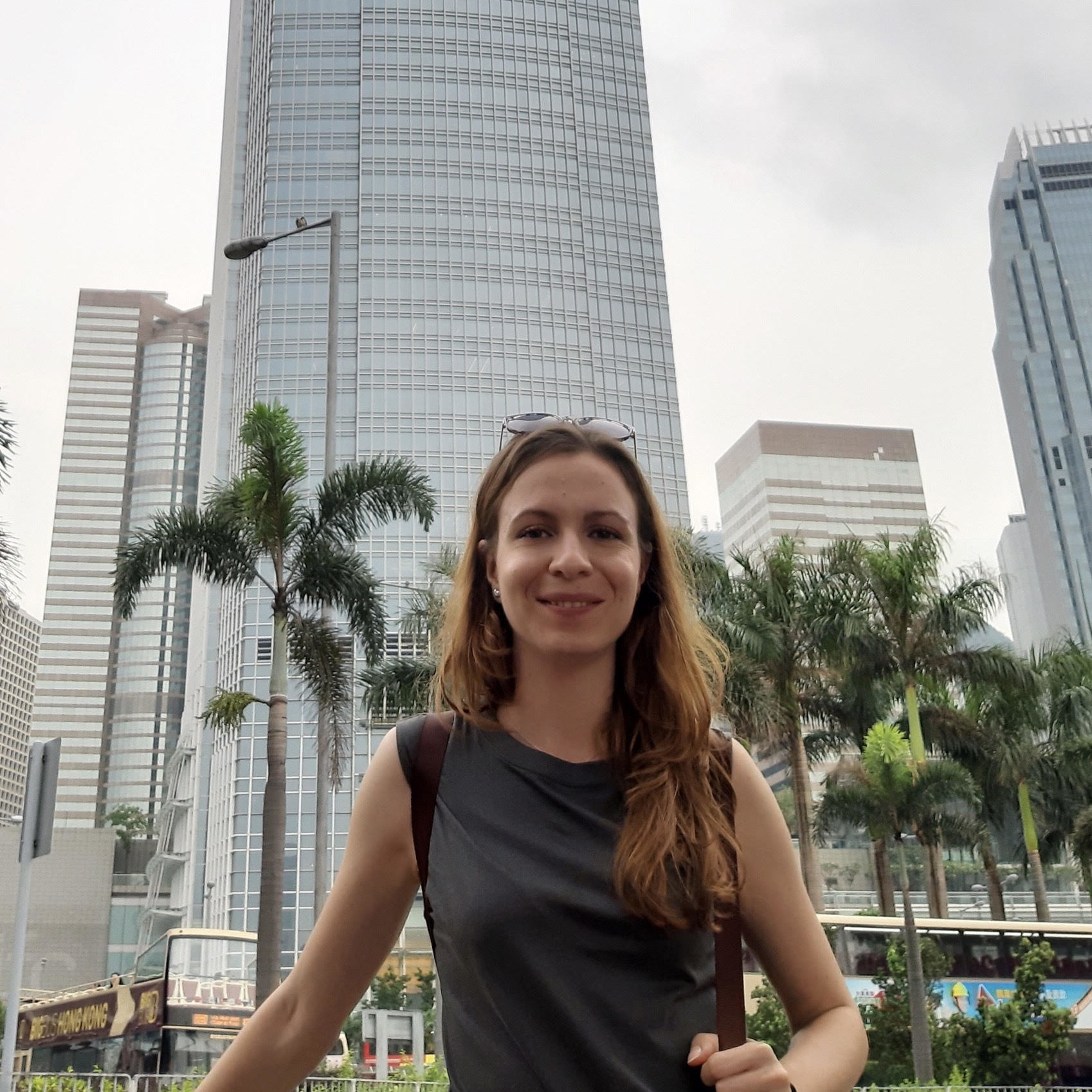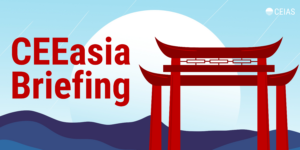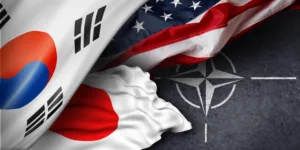Time for rapprochement in the Taiwan Strait?
Taiwan has been considered one of the most successful countries in dealing with COVID-19. However, over the past two months, the island has seen a sudden rise in domestic cases prompting the authorities to heighten restrictions to the third level for the first time since the pandemic has begun in the world. The new outbreak has now been pressuring the government to speed up the procurement of vaccines, which proves to be a challenging task giving the vaccine shortage in the world, the country’s limited international recognition, and blocked participation in discussions related to global health issues. Some local voices argue that Taiwan’s slow administration of COVID-19 vaccines is the result of lacking an overall strategy for vaccine acquisition and development. In this context, China’s offer to provide Taiwan with vaccines stirred an interesting debate on both sides of the Strait.
Taiwanese compatriots need mainland China?
As soon as the local authorities in Taiwan announced the level up of restrictions in mid-May, Beijing expressed its willingness to provide Taiwan with anti-epidemic support including BioNTech vaccines from China’s Shanghai Fosun Pharmaceutical Group Co Ltd. Xinhua News quoted the spokesperson for the Taiwan Affairs Office of the State Council Zhu Fenglian commenting on the recent outbreak in Taiwan: “Compatriots on both sides of the strait are the sons and daughters of China. Compatriots in Taiwan are our natural relatives. We are willing to do our utmost to help Taiwan compatriots overcome the epidemic as soon as possible.”
As much as Taiwan needs assistance, Beijing’s help is most likely to be the last one the current government will accept. Taiwan’s ruling pro-independence Democratic Progressive Party (DPP) argues that due to a legal ban on importing Chinese pharmaceutical products that are not internationally certified, it is not possible to buy Chinese-made vaccines. Safety concerns are another aspect the DPP points out. “China has not been transparent about its domestic situation amid the pandemic or about its vaccines. If Taiwan was to obtain vaccines from China, there would be safety and efficacy concerns, and even risk factors.” However, let us not forget about the political aspect. Suggesting that an order for vaccines by German BioNTech has been previously blocked by Beijing, the administration now accuses China of using its vaccine diplomacy to promote unification – a dreadful scenario for the island.
Although by global standards, the three-digit number of daily cases appears small, the recent COVID-19 outbreak has been the most serious Taiwan has experienced since the pandemic overwhelmed the world in 2020. At the time of writing this article, just 1% of the population of 23 million had received a jab. Panic, criticism, and distrust towards the DPP government are trends that are becoming proportional to the escalation of the domestic cases. An extent of exaggeration can be observed on Chinese media headlines, such as “DPP ignores mainland kindness, locals cry for jab” and allegedly quoting Taiwanese citizens comments on the outbreak: “The island became one of the most desperate markets in the world, crying for vaccines when its hopes of securing the US and European vaccines were foiled.”
Testing the U.S. commitment to Taiwan
The shortage of vaccines and the difficulty Taiwan has in procuring them feeds Beijing confidence about its advantage over the island. As expected, China saw in the situation an opportunity to test the U.S. commitment to Taiwan. As soon as it appeared that the island was not on Washington’s priority list, editorials in China promptly reacted by mocking the relationship. “The nature of Washington-Taiwan relations is that Washington doesn’t care about the island’s interests at all, but it has always regarded the island as a card and pawn. The US uses Taiwan island as a tool,” wrote Global Times, a nationalistic tabloid. Indeed, the comments of Brent Christensen, the outgoing de-facto American ambassador in Taiwan, sent a signal to Taiwanese people that the U.S. is not very concerned about the epidemic in Taiwan, and Washington needs to consider the allies with more serious epidemic conditions. Chinese Global Times followed commenting “the US’ enthusiasm for offering COVID-19 vaccines to Taiwan is far less than its enthusiasm for selling weapons to Taiwan.”
China took delight in questioning the US support amid Taiwan’s international isolation. An article on Global Times called on people in Taiwan “to start asking themselves if the Americans cannot provide vaccines in time, can they trust Washington’s commitment to defend the island of Taiwan?” However, this narrative has changed after the bipartisan U.S. visit to the island in June announced that Washington will provide 750,000 doses of Pfizer vaccines to Taiwan. China considers the promised amount “a drop in a bucket” and the visit an obvious provocation with a political context. The fact that the American delegation arrived in a military aircraft has been interpreted by Beijing as an attempt to encourage the Tsai’s government to use pandemics to seek independence. As a result, an article in the Xinhua News that operates under governmental control condemned any attempts by the U.S. that cross the red line of the “one China” principle. “If anyone continues to attempt separating Taiwan from China, China will inevitably deliver a blow at all costs. The U.S. side should not make any strategic misjudgments.”
There is no surprise that Beijing remained troubled by the move from the U.S. as it came two days after Japan donated 1.24 million doses of Astra Zeneca. Beijing questioned the real motive behind this action by pointing out that Japan itself is lacking a sufficient supply of vaccines. China’s Foreign Ministry Spokesperson Wang Wenbin has been widely referred on the media saying that “China firmly opposes the use of the epidemic for political purposes and to interfere in China’s internal affairs. Vaccine assistance should return to the original intention of saving lives, and should not be reduced to a tool for political self-interest.” Global Times quoted Chinese experts arguing that “the DPP authority’s response to the vaccine offers from the US, Japan, and the mainland is in line with Taiwan’s ‘pro-US, pro-Japan, and anti-Chinese mainland’ strategy.” Although the dose does not solve Taiwan’s practical problems and is thus more of a gesture, Beijing’s side is aware that such aid may have some political motives.
To discredit the meaning of the Japanese aid, Chinese media warned against the risk of the Astra Zeneca vaccines. “Japan sent vaccines to Taiwan? Take a closer look: it’s all things Japan doesn’t want! Worry about security” were the type of headlines that widely circulated following the donation. The narrative of these articles focused mostly on pushing the idea that the DPP authorities ‘sabotaged’ Beijing’s offer to get Pfizer-BionNTech vaccines and made Taiwan have to accept another batch of ‘risky’ Astra Zeneca vaccine. “Due to severe side effects such as blood clots in the AstraZeneca vaccine in Europe, the Japanese government has not listed this vaccine as a publicly funded vaccine.” The media thus conveyed the idea that Tokyo donated to Taiwan unwanted vaccines and the DPP government foolishly accepted them out of political self-interest while turning a blind eye to the mainland’s kindness.
Eventually, the U.S. tripled vaccines for Taiwan with 2.5 million-dose shipment, prompting Chinese media to comment that the move is a political ploy to support the pro-U.S. DPP government facing a plummeting domestic support rate. “The current DPP authority has the most loyal politicians in the island who follow the US. Their failure to fight the epidemic was spurned by the Taiwan people and will affect the quality of their service to the US Indo-Pacific strategy and harm the interests of the US. To help Tsai get through at this point would be to solidify the US’ influence in Taiwan.”
Kind mainland vs arrogant DPP
One can observe, that the narrative pushed by Chinese media covering the vaccine dispute over the Strait promotes the image of Beijing’s charitable benevolence against the DPP’s stubbornness and selfishness in rejecting its vaccines. “Without a correct understanding of the goodwill of the Chinese mainland in providing vaccines to its compatriots, the DPP’s politicization of vaccines has undoubtedly brought greater challenges to Taiwan’s epidemic prevention efforts. The final victims of this political game are the ordinary people on the island.”
Therefore, Beijing calls on Taipei to cast aside political prejudices and recognize the urgent necessity to open up to Chinese help. Reportedly, the time has arrived for Beijing’s vaccine diplomacy to show that the generosity of the motherland is greater than any dispute. “The most pressing matter of the moment is to remove the man-made political barriers on the island, make vaccines available for the large public of Taiwan compatriots, and ensure health, benefits, and well-being of all of Taiwan compatriots,” press agency Xinhua reported.
Per mainland Chinese media, the problem is, that Taiwan does not wish to be saved by China. At least not as long as it is governed by the DPP. According to the most recent DPP polls and surveys by Global Views Monthly and Taipei-based Association of Chinese Elite Leadership, the majority of Taiwanese people have been distrustful of Chinese vaccines. According to a poll from March 2021, more than 75% of Taiwanese refuse the Chinese vaccine. Despite that, several opposition individuals, mostly from the traditionally more China-friendly Kuomintang (KMT) or parties favoring unification, have been calling on Tsai’s administration to make a deal with China and import the vaccines. Most recent calls come from several KMT affiliated individuals and local authorities followed by the founder of Foxconn Terry Gou or the Buddhist charity institution Fo Guangshan. China interprets this as the will of “vast numbers of Taiwan compatriots [that] are eagerly looking forward to the use of mainland vaccines.” As a result, Chinese media claim that the biggest obstacle to provide help to the other side of the Strait comes from the DPP authorities that “repeatedly obstructed and maliciously discredited the purchase of Chinese vaccines.”
Taiwan’s pro-China voices getting loud
Unsurprisingly, the KMT with other opposition parties that have been criticizing the DPP for worsened cross-strait relations ever since President Tsai took office in 2016, play an important role in building Beijing’s campaign against the pro-independence government. Voices attacking the DPP government for ineffective measures and for the refusal to accept Chinese vaccines are very useful to China. “The enemy is the virus, not Beijing,” is the slogan of the opposition and consistent with the CCP’s critique of the DPP for politicizing the vaccine imports: “The DPP authority should not use the local law as an excuse to impose man-made political barriers on vaccine imports from the mainland.” Such statements circulate widely on both Taiwanese and Chinese media.
It is therefore not surprising that the DPP accuses the KMT members of “following the same playbook and singing the same tune” with the PRC government: “At this crucial time, KMT politicians are focused on misleading people, creating instability and dissent in society, and turning people against the Central Epidemic Command Center (CECC).” The vaccine dispute carries a political context not only in the cross-strait relations but also on the domestic level in Taiwan. Most likely, the KMT is attempting to secure orders of vaccines faster than the DPP and before the finalization of Taiwan’s own domestically produced shots (expected to be rolled out by end of July). This would help the party, which is gradually losing popular votes, to revitalize and appeal to people with better solutions in a situation of crisis. There is no doubt, that Beijing would welcome the return of the KMT as this would suggest possibilities of renewing the cross-strait dialogue and chances for rapprochement. At the current stage, the challenge for the DPP government lies in proving to its own people and the world, that Taiwan is still able to manage the pandemic, and ideally to show that Taiwan can still help with its own vaccines. Meanwhile, pressure from across the strait and the opposition will attempt to hamper this plan.
For Beijing, the ideal scenario is clear: “The severer the epidemic gets on the island, the more Taiwan needs the mainland, and the voice of the DPP will become weaker and weaker.” Only time will show which party on the island will gain from this political game. But the rivalry between Washington and Beijing over the superiority in vaccine diplomacy will most likely obstruct the latter’s wishful rapprochement with the compatriots over the Strait.







